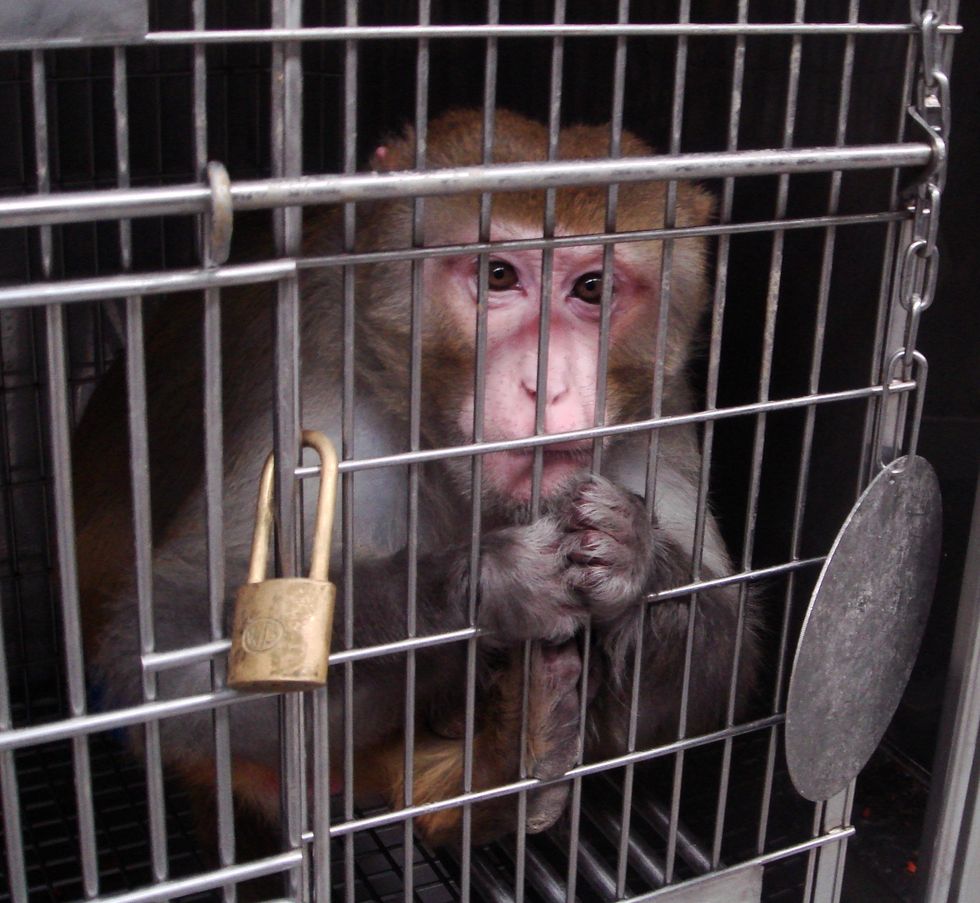In March 2006, the German-manufactured pharmaceutical code-named TGN1412 was eligible to be tested on humans after passing animal tests in mice, rats, and monkeys. Six men volunteered to participate in a clinical trial for TGN1412, which was designed to treat leukemia and autoimmune and inflammatory diseases. Each received a dose of the pharmaceutical that was 500 times less than that which had been administered to the monkeys. Within just a few hours, each of the six men had been rushed to a London hospital with severe headaches and convulsions, and all were suffering from multiple organ failure. Fortunately, all of the volunteers survived, but not without permanent damage done to their organs by TGN1412. A subsequent investigation by the British Medicine and Health Products Regulatory Agency concluded that the severe reactions of the six men were caused by adverse effects of the drug in humans that had not been observed in any of the mice, rats, or monkeys tested.
Although an isolated incident, the TGN1412 catastrophe reflects the injustice of animal testing for purposes of biomedical research, particularly to develop and evaluate the effectiveness and safety of pharmaceuticals. Animal testing refers to the procedures and experiments performed on living animals for scientific research. While various species of animals are used for testing, mice, rats, birds, fish, rabbits, guinea pigs, hamsters, cats, and dogs are used most often as experimental subjects. Animal testing not only poses potential health risks to humans, but also demands the cruel and inhumane treatment of innocent animals for experimental purposes.
Proponents of animal testing claim that experimental procedures are designed to cause animals as little harm and suffering as possible; however, testing procedures performed on animals are often cruel and inhumane and have the potential to cause considerable distress, both physically and psychologically. For example, common methods of biomedical research include prolonged physical restraint, deprivation of food and water, forced consumption of and exposure to toxic drugs and chemicals, and genetic manipulations to create animal models of human diseases, such as cancer and AIDS. Additionally, most animals are killed when an experiment is concluded, often by asphyxiation, neck-breaking, and decapitation.
The use of animal testing to develop pharmaceuticals also poses a threat to the health and safety of humans; this threat is a consequence of the fact that animal experimentation, when used to assess the effectiveness of pharmaceuticals, is often unsuccessful. In fact, according to the Humane Society International, approximately 90 percent of pharmaceuticals tested on animals fail to advance to human clinical trials, and of the few that pass animal testing, an estimated 92 percent fail clinical trials. This fact indicates that the vast majority of pharmaceuticals developed using animal testing ultimately prove to be ineffective methods of treatment. The inconsistency between the results of animal testing and those of human clinical trials strongly suggest that animal testing procedures are an unreliable method of research.
Those who support animal testing insist that the practice is indispensable to the pharmaceutical industry. However, animal rights advocacy groups and biomedical researchers opposed have effectively worked toward the development of new, improved methods to replace the practice. Such methods observe what is commonly referred to as “the 3Rs.” Alternative methods should, in theory, “reduce, refine, and replace” animal testing. These three goals outline three specific objectives: the number of animals tested should be reduced but continue to achieve test objectives; current procedures that disturb the physical or psychological welfare of animals should be refined to eliminate pain and suffering; and finally, animals should be replaced with advanced technology when possible. Indeed, the final objective of “the 3Rs” appears to hold the greatest potential. Technological advancements have produced various alternative methods to animal testing in recent years. For example, “organs-on-chips” are microchips lined with human cells that simulate human physiology and the progression of diseases. Quantitative structure-activity relationships, or QSARs, are computer-based models that estimate a substance’s likelihood of being hazardous. Biochemical and cell-based systems are also undergoing development to mimic the structures and functions of human organs.
In order to meet the goals outlined by “the 3Rs,” we must promote greater public recognition of the injustices of animal testing. With increased awareness, a stronger representation of the population will pressure the government to define stricter regulations and standards to monitor testing procedures. The public should also advocate for increased funding to develop alternative methods of technology that could potentially replace methods of inhumane and ineffective animal testing.



















